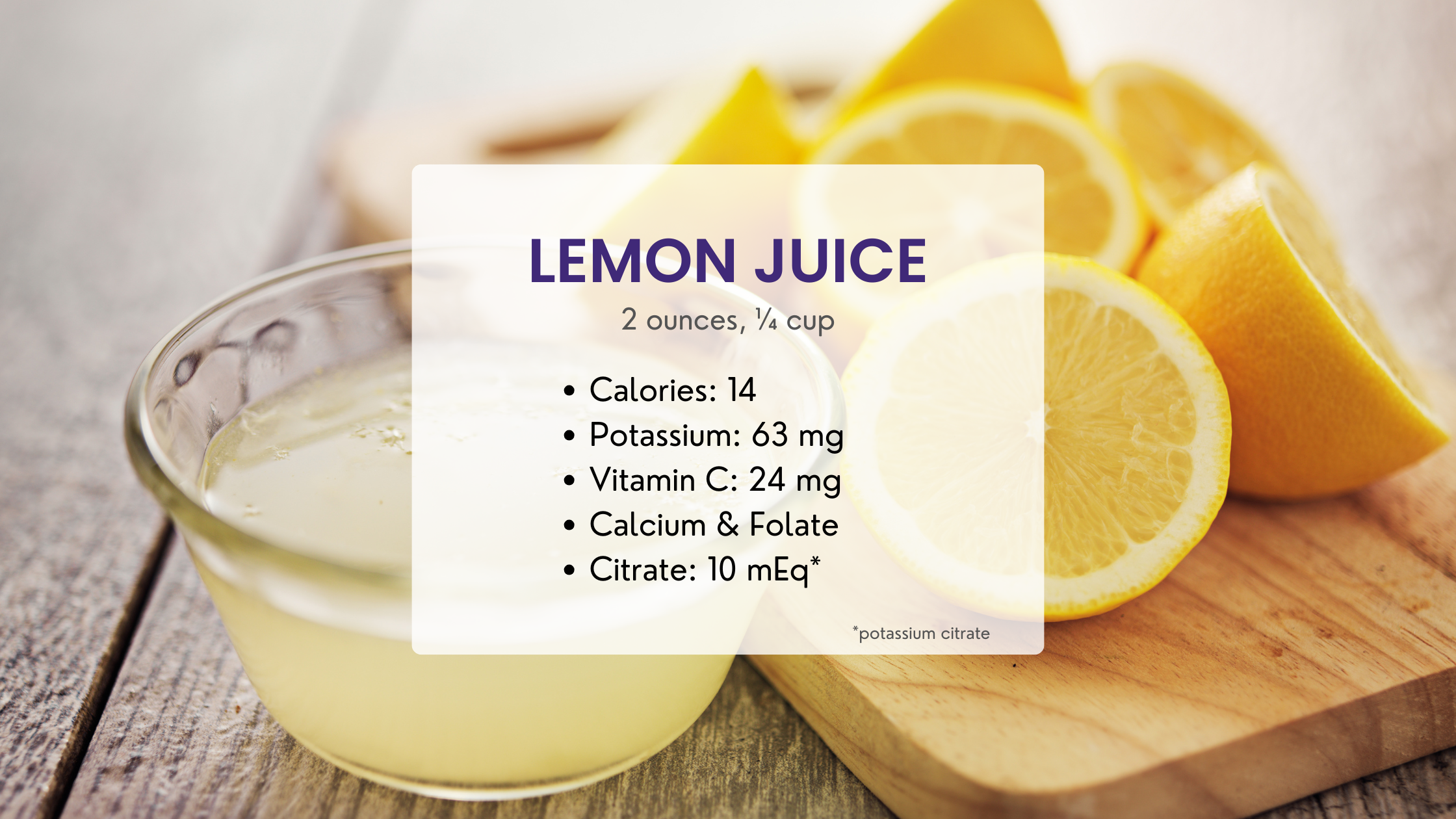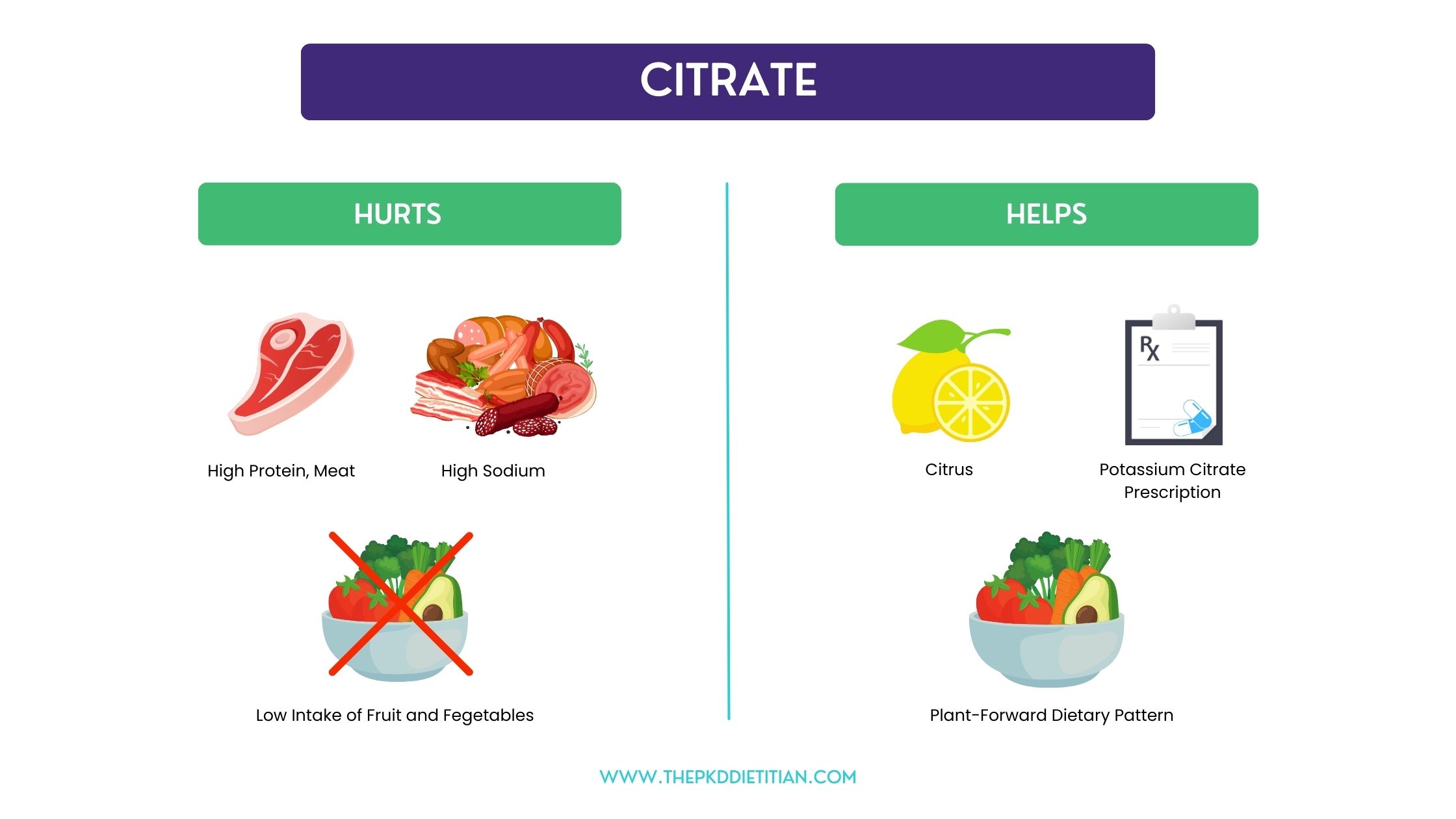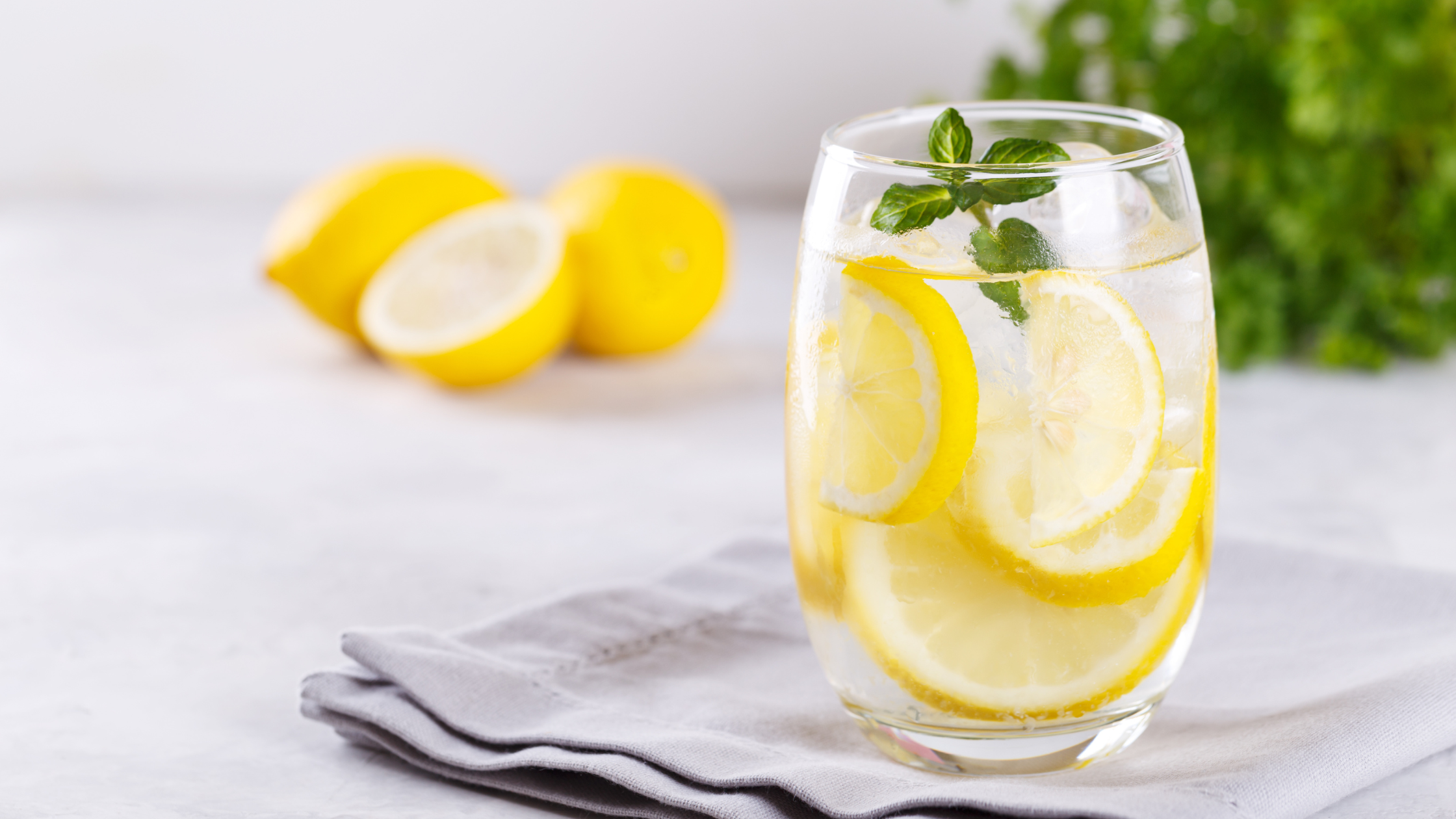
Is Drinking Lemon Juice Good for Polycystic Kidneys?
May 19, 2025Have you heard—or been told—that drinking lemon juice is good for PKD? As a dietitian who specializes in kidney health, and after years of working closely with clients for polycystic kidney health, I’ve heard this question come up time and time again.
Usually, when someone asks, “Can I drink lemon juice?”—what they really mean is, “Is it safe for my kidneys?” or “Could it actually help?”.
In this blog, I'll break down the science behind lemon juice and PKD. We'll also look at what's in lemon juice that might benefit your kidney health, and how specific to Polycystic Kidney Disease. Then I’ll give you some practical tips if you decide to start adding lemon juice to your routine. Let’s dive in!
Why Lemon Juice for PKD?
When it comes to PKD, the two most common reasons I find people add lemon juice to their routine are:
-
To help prevent kidney stones
-
To support a better urine pH balance
Nutrition Profile of Lemon Juice
What is it about lemon juice that is considered beneficial?
Let’s take a look at it's nutritional profile and if it adding it to your PKD Diet supports better urine pH balance and helps prevent kidney stones.
One quarter cup, that's 2 ounces - what you'll get if you juice one lemon, has:
- 14 calories
- 63 mg potassium
- 24 mg Vitamin C
- A little calcium and folate
- Citrate, about 10 mEq of potassium citrate
While those exact amounts aren't crucial to remember, the important part to know is that lemon juice contains potassium, vitamin C, and citrate – all of which have Perks for Polycystic Kidneys.

*Source: USDA FoodData Central
Citrate and Kidney Stones
Did you happen to notice that lemon juice contains citrate? Lemons provide a significant source of citrate, in the form citric acid, and have more than any other fruit or vegetable! Citrate, a natural compound, plays two important roles when it comes to PKD health:
1. Citrate and Kidney Stones
Citrate binds to calcium in urine, preventing calcium from binding with oxalates or uric acid to form kidney stones. This is particularly relevant for PKD patients, who have higher rates and risk of kidney stone formation.Kidney stones cause kidney damage, if you have had one it's important to find out why you formed it and what you can do to prevent another. Your urine and diet hold the key to this. For a deeper dive into kidney stones and PKD, check out Kidney Stone Risk & Polycystic Kidney Disease, are they connected? Explore more on how nutrition can help prevent stones in Kidney Stones & PKD, Can Nutrition Help?.
2. Citrate and Urine pH
Folks with PKD tend to have more acidic urine, a lower urine pH. This creates an environment where kidney stones like to form. Citrate helps to increase urine's pH, making it less acidic, and this helps reduce kidney stone risk and to prevent formation of new ones. Many people with PKD—even in the early stages when kidney function still registers as normal —tend to have lower citrate levels. That’s one reason stones are more common in PKD than in the general population . Research indicates that about 50% of PKD patients with normal kidney function have low citrate levels. Lower urinary citrate in PKD is associated with faster kidney function (eGFR) decline and progression of PKD.
Dietary Citrate
Is lemon juice the only citrate source you can add to your diet? No!
Citrate is in all fruits and vegetables in varying amounts. Lemons, limes and other citrus have the most! Even though lemons and citrus contribute higher amounts of citrate, all other fruit and vegetables in your diet aren't to be discounted for their contributions too. After all, food is more than one nutrient - it is a whole matrix of benefits that work together and add up to have a significant impact on your citrate balance and health.
Of note, there are some dietary patterns that work against PKD Health regarding citrate levels. A diet high in animal meat creates a high acid load, causing your kidneys to reabsorb more citrate so they can help neutralize that acid load. This means less citrate ends up in your urine where it's needed and beneficial. Also why meat heavy diets tend to lean towards an acidic body balance and acidic urine.
Plant-based foods, on the other hand, have a lower acid load - are alkaline - and many are naturally rich in citrate, supporting better urinary levels. Pivoting to a more plant-forward diet can help maintain better citrate balance with PKD in addition to having many other Perks For PKD.
The Potassium Connection
While citrate is important, let’s not forget about potassium. Lemon juice contains a fair amount of potassium, an electrolyte the helps maintain your body's acid-base balance. Potassium can also help increase acid urine to a more basic level, this is why potassium is often referred to as an "alkalizing agent." It's also why many PKD'ers, especially those who have formed stones, are given a potassium citrate supplement prescription. Those two elements work together symbiotically, both with supplementation and in food.
The combination of potassium and citrate work together to help:
- Reduce stone formation risk
- Balance urine pH
- Slow cyst growth by helping to prevent kidney injury
- Support better kidney function preservation
Looking for more information on potassium and PKD? I got your covered, check out The Ultimate Truth About Potassium, PKD, and Your Kidney Health.
You might be thinking..."But lemons are acidic, how can they make my urine less acidic?"
While lemon juice can make you pucker and is acidic in taste, it isn't acid producing during digestion. Inside your body, the citrate + potassium components have an alkalizing effect – meaning lemon juice in your mouth is acidic, but in your body, it has the opposite effect.
Ultimately, potassium and citrate are both helpful for PKD'ers. They can not only help prevent the formation of kidney stones but they help created an environment less favorable for kidney stones by increasing the alkalinity of urine, increasing the pH. When we find them together, as in the case with potassium citrate, it’s like an added bonus!
What Does the Science Say?
When it comes to lemon juice and polycystic kidney disease (PKD), it helps to understand what the science shows around citrate, pH, and kidney health.
An observational study of 120 PKD patients found that low urinary citrate isn't just common in advanced kidney disease - it shows up super early. About half of patients had low levels even when their kidney function looked normal, and these lower levels predicted faster decline in kidney function over time.
It's important to note that human studies on this topic are mostly observational, showing a connection between low citrate levels and faster function decline, but not necessarily proving that one causes the other. The big question researchers are still investigating is whether low citrate levels cause kidney decline or are a consequence of disease progression and kidney damage.
Animal studies add a bit more insight. In them potassium citrate supplementation helped prevent GFR decline, likely due to its alkalinizing effect on the urine.These same researchers also looked at retrospective data from human patients with PKD and found a notable correlation between lower urinary citrate levels and advanced disease progression. More research is needed to understand whether low citrate is a cause or consequence of progression in PKD.
How Much Lemon Juice?
Most of the research looking at lemon juice comes from kidney stone studies. They suggest that drinking half a cup of lemon juice concentrate (about 8 tablespoons, or the juice of two large lemons) daily can increase urine citrate levels and reduce kidney stone formation.
This is a substantial amount of lemon juice! For sure would been added to water to dilute it and make it drinkable. With my PKD clients, those who would benefit from increased citrate intake, I usually recommend around 4 oz of lemon juice.
Potential Downsides to Consider
Research suggests that adding lemon juice to your diet can be beneficial for PKD kidney health, but there are a few potential disadvantages to consider.
Dental health
The American Dental Association notes that excessive citrus consumption can weaken tooth enamel due to its acidic nature. If you drink lemon water regularly, consider using a straw and/or rinsing your mouth with water afterward.
Digestive issues
If you have stomach or gut issues, lemon juice may not be the best option for you. Due to its acidity, lemon juice may trigger GERD or worsen stomach ulcers in some people.
In Summary
Some key takeaways for you:
- If you have PKD, you may have lower citrate levels and more acidic urine than the general population.
- Consuming lemon juice may help increase both your citrate and urine pH, potentially supporting better PKD kidney health and reducing stone formation risk.
- All fruits and vegetables contain some citrate, lemons and citrus have the highest concentrations.
- Eating a plant-forward diet (and less meat-forward) supports better citrate balance.
- Adding lemon juice to your water, using it in salad dressings, or squeezing it over foods will not hurt your kidneys but instead may add Perks for PKD.
The Bottom Line
Lemon juice can be a safe and supportive addition to your PKD diet—especially if you're aiming to prevent kidney stones and add variety to your fluid intake.
But like all things with PKD nutrition, context matters. Your labs, stage of kidney function, and individual goals should guide how (and if) lemon juice fits into your PKD Diet plan.
When in doubt, talk to your kidney dietitian—they can help you weigh the risks and benefits benefits based on your unique needs.
Tips & Tidbits
If you’re considering adding lemon juice to your diet, here are some easy ways to start:
- Start Small: Begin with the juice of half a lemon mixed with water daily.
- Monitor Your Health: Keep track of any changes in your symptoms or overall health.
- Consult a Professional: Always consult with a healthcare provider or dietitian before making significant changes to your diet.
So, can PKD patients drink lemon juice?
Absolutely! Not only is it safe for your kidneys, but it may offer protective benefits.
Look for more guidance on what to eat (or avoid) for PKD?
If you want personalized support and a nutrition strategy designed specifically for your kidneys, your first step is to hop on a PKD Connect Call with me. Learn more about your options, what working together looks like, and next steps. You are worth it, your kidneys are worth it.
👉 Schedule Your PKD Connect Call Now
In Health,
Diana, The PKD Dietitian

References
- Urinary Citrate Is Associated with Kidney Outcomes in Early Polycystic Kidney Disease
- Urinary citrate as a marker of renal function in patients with autosomal dominant polycystic kidney disease
- Decreased Urinary Citrate Levels as a Marker of Progressive Deterioration of Glomerular Filtration in Patients With Autosomal Dominant Polycystic Kidney Disease (ADPKD)
- Fresh lemon juice supplementation for the prevention of recurrent stones in calcium oxalate nephrolithiasis: A pragmatic, prospective, randomised, open, blinded endpoint (PROBE) trial
- Citrate therapy for polycystic kidney disease in rats
- A combination of β-hydroxybutyrate and citrate ameliorates disease progression in a rat model of polycystic kidney disease
- Crystal deposition triggers tubule dilation that accelerates cystogenesis in polycystic kidney disease
- Potassium citrate/citric acid intake improves renal function in rats with polycystic kidney disease.
- Quantitative Assessment of Citric Acid in Lemon Juice, Lime Juice, and Commercially-Available Fruit Juice Products
- The Effectiveness of Lemon Solution versus Potassium Citrate in the Management of Hypocitraturic Calcium Kidney Stones: A Systematic Review
- Assessment of citrate concentrations in citrus fruit-based juices and beverages: implications for management of hypocitraturic nephrolithiasis
- Fresh lemon juice supplementation for the prevention of recurrent stones in calcium oxalate nephrolithiasis



